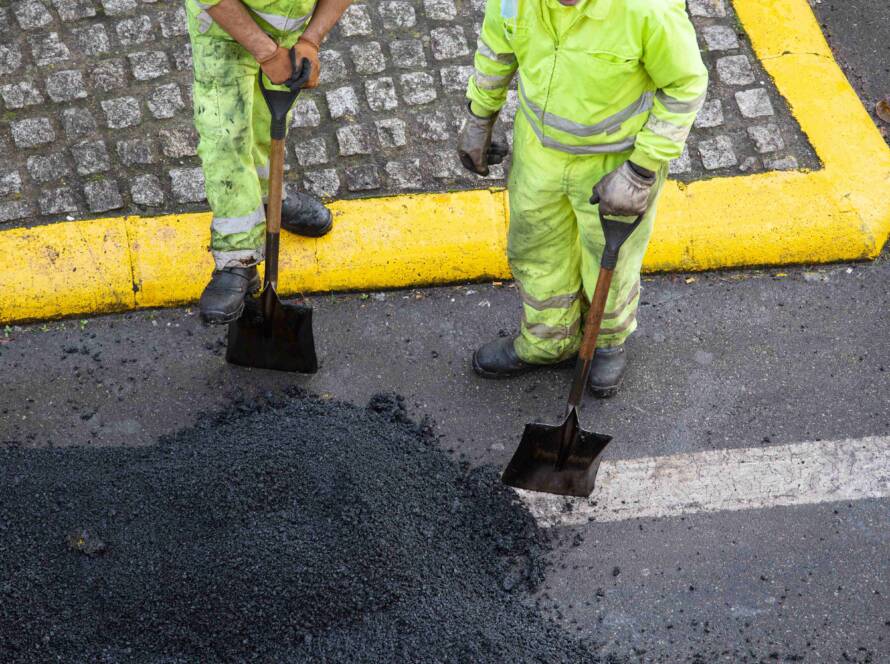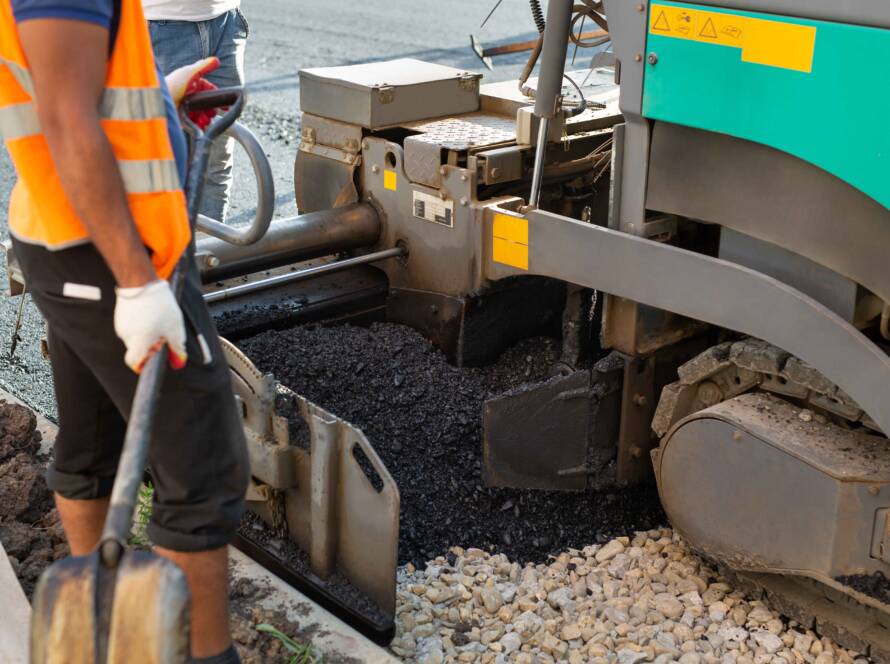Choosing the Right Driveway Surface
Your driveway is more than just a parking space — it’s the first impression of your home. Whether you’re renovating or building from scratch, the choice between resin-bound and tarmac driveways is one of the most important decisions for both aesthetics and functionality.
Each material offers unique advantages in durability, maintenance, and visual appeal. Let’s explore the key differences to help you make an informed choice for your UK property.
Understanding Resin-Bound Driveways
Resin-bound driveways have rapidly grown in popularity across the UK thanks to their sleek appearance, permeability, and custom design options. A resin-bound surface combines natural aggregates (stones) with a clear resin binder, which is then trowelled to create a smooth, seamless finish.
Advantages of Resin Driveways
- Attractive Appearance Resin driveways offer a premium, modern look that can be tailored to any home. With a range of aggregate colours — from golden hues to contemporary greys — homeowners can design a finish that complements their property style perfectly.
- Permeability and Drainage Resin-bound systems are fully permeable, allowing rainwater to pass through easily. This eliminates puddles and reduces the risk of flooding — an important advantage in the UK’s often wet climate. It also makes them SUDS-compliant (Sustainable Drainage System), a key factor in planning approval for new builds.
- Low Maintenance Resin driveways are weed-resistant and easy to clean. A simple occasional power wash keeps the surface looking new for years. Unlike block paving, there are no gaps where moss or weeds can grow.
- Durability and Flexibility The resin’s natural flexibility helps prevent cracking under pressure. It can handle daily vehicle traffic with ease, and when installed on a strong sub-base, it remains smooth for over a decade.
- Slip Resistance With the right aggregate mix, resin driveways offer excellent traction — even in wet weather — making them safe for vehicles and pedestrians alike.
Considerations for Resin Driveways
- Cost: Resin-bound driveways tend to be slightly more expensive than traditional tarmac due to materials and labour precision.
- Installation Conditions: They should be laid on a dry surface, as moisture during installation can affect bonding.
- Professional Installation Required: To ensure long-lasting results, resin driveways should always be installed by certified contractors.
Understanding Tarmac Driveways
Tarmac (short for tarmacadam) has been a trusted choice in the UK for decades — valued for its strength, affordability, and quick installation. It’s made from crushed stone mixed with bitumen, forming a durable surface ideal for driveways, car parks, and roads.
Advantages of Tarmac Driveways
- Cost-Effective Solution Tarmac driveways are generally cheaper to install than resin-bound options. For homeowners on a tighter budget, it’s a reliable and durable choice that still provides great visual results when properly maintained.
- Fast Installation Tarmac sets quickly, making it ideal for large or time-sensitive projects. In many cases, a new driveway can be completed and ready to use within one to two days.
- Durable and Long-Lasting When properly installed and sealed, tarmac driveways can last 15–20 years. They’re capable of handling heavy vehicles and constant use without major issues.
- Weather Resistant Designed for the UK climate, tarmac performs well under both heat and frost. It expands and contracts naturally, reducing the risk of cracking when compared to concrete.
- Easy to Repair or Resurface If damaged, tarmac can be patched or resurfaced quickly and affordably, extending its life span without needing full replacement.
Considerations for Tarmac Driveways
- Appearance: While modern tarmac is neat and tidy, it lacks the custom design flexibility of resin-bound surfaces.
- Colour Options: Tarmac is traditionally black, with limited colour variation unless coated with decorative finishes.
- Maintenance: Over time, UV exposure can cause tarmac to fade. Periodic resealing helps preserve its rich colour and water resistance.
Head-to-Head Comparison: Resin vs Tarmac
| Feature | Resin-Bound Driveway | Tarmac Driveway |
|---|---|---|
| Appearance | Customisable colours and textures | Classic black, minimal variation |
| Durability | 10–15 years with minimal cracking | 15–20 years with regular sealing |
| Drainage | Fully permeable (SUDS compliant) | Requires separate drainage system |
| Maintenance | Very low, simple cleaning | Needs resealing over time |
| Installation Time | 2–3 days | 1–2 days |
| Cost Range (per m²) | £50–£80 | £40–£60 |
| Eco-Friendliness | Uses natural aggregates, recyclable | Can include recycled asphalt |
| Visual Appeal | Modern, decorative finish | Functional and traditional look |
Which One Should You Choose?
Choosing between resin and tarmac comes down to your priorities, budget, and property style.
Choose Resin-Bound Driveway If:
- You value aesthetics and want a sleek, modern look.
- You need a permeable surface that prevents water pooling.
- You prefer minimal maintenance and long-term cleanliness.
- Your home design benefits from decorative finishes or mixed colour tones.
Choose Tarmac Driveway If:
- You want a cost-effective, robust surface for heavy use.
- You need a quick installation with minimal downtime.
- You prefer a simple, professional appearance.
- You don’t mind occasional resealing or maintenance.
In many cases, a hybrid approach can be ideal — for instance, using resin-bound borders over a tarmac base for both strength and visual impact.
Professional Installation Matters Most
Regardless of material choice, the quality of installation determines longevity and performance. Even the best resin or tarmac will fail prematurely if laid on a weak sub-base or under poor drainage conditions.
At Total Surfacing Solutions, we take every project from ground preparation to final finish with precision and care. Our skilled team ensures the correct base depth, edge restraint, and compaction level, delivering a driveway that not only looks perfect but performs flawlessly for years to come.
Sustainability and the Future of Driveway Surfacing
Both tarmac and resin technology are evolving toward greener solutions. Recycled aggregates, low-temperature asphalt, and eco-resins are helping reduce carbon emissions. In addition, resin-bound systems promote natural drainage and help prevent localised flooding — making them a popular choice for sustainable home improvements across the UK.
By combining strength, design flexibility, and eco-consciousness, modern surfacing solutions are reshaping residential landscapes — one driveway at a time.
Conclusion: Style Meets Strength
Ultimately, both resin-bound and tarmac driveways are excellent choices — it simply depends on your goals. Resin wins on aesthetics and drainage, while tarmac takes the lead in affordability and speed.
Whatever your preference, a properly laid surface will transform your property’s kerb appeal and add long-term value.


